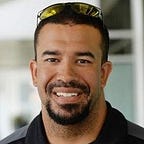Verizon set to launch fixed wireless service
The battle over who will provide 5G network continues to intensify with Verizon announcing that it will deploy both mobile and fixed wireless 5G network in Los Angeles in the course of this year. This technology is constantly evolving with more and more companies embracing wireless networks for last mile delivery.
5G in deployment is both a spectrum (60–80ghz) and speed (typically aimed for 1gbps) specification that is short range, ment to deploy in “micro cells” for dense urban applications or where commercial clients need very high speed access.
“I think we’re a lot closer than people think,” said Verizon’s chief executive Lowell McAdam, speaking of Verizon’s 5G deployment, who is set to step down in July this year. He will be replaced by Hans Vestberg who has been the company’s CTO and President of Global Networks. The establishment of 5G wireless networks is going to be a huge leap by Verizon. Plans are already underway to have it installed in Sacramento and Los Angeles by the end of 2018.
Verizon’s 5G wireless network plans
As opposed to the traditional cable networks, Verizon is set to provide 5G and specifically target fixed wireless deployments. The company admits that it needs to invest heavily in fiber and will probably still have to create the largest fiber network to compete, but the costs and deployment of fiber networks has them searching for alternatives. Verizon sees this as an opportunity they could exploit. According to Matt Ellis, Verizon’s 5G plans on targeting around 30 million homes that are outside the areas where the company has deployed its FIOS service.
Ellis also noted that the 5G wireless technology does not need a direct line of sight to reach the recipient. Further, its coverage extends up to 20 floors high, factors that make it ideal for high apartment residences.
5G broadband investments will rise
The 5G technology still appears to be in its infancy, with no set standard yet from the specification authority IEEE and manufactures still themselves deciding the exact standard. While it is still a few years away from maturity , the overall consensus is it will eventually be very effective in short range applications, less in rural locations and more likely better suited in urban ones.
Horizon Communications is set on deploying the LTE open standard, as well as microwave solutions, with 5G applications set for dense urban applications. Larger telecommunication companies such as Verzion already have invested billions in their large area networks, so 5G will be used to fill gaps and LTE will likely be used for replacement of traditional networks in stages.
Acquisition of more telecom and IoT software
If Verizon is to realize its set objectives, the need to strengthen its IoT muscle is inevitable. Verizon, under McAdam’s tenure, used almost $4 billion to purchase telematics firms including Fleetmatics, Hughes Telematics, and Telogis. This does not include the amount of money used to buy Yahoo and AOL. If Vestberg is to continue with McAdam’s legacy, we can only expect the firm to close more deals.
Increased Capex
Since 2014, Verizon’s capital spending has been almost consistent as it was fluctuating between $17.2 billion and $17.8 billion. A research from the New Street Research shows that in order for Verizon to successfully provide 5G fixed wireless connection to 8 million subscribers, they would have to use $35 billion as capex in the deployment phase, a number dramatically lower then the cost roll out fiber to a similar amount of customers.
Reduced cable usage
Verizon’s wireless move is expected to negatively impact cable broadband connections. According to New Street, cable connection could reduce from 4.1% to around 3.7% is Verizon rolls out its fixed wireless plans as aggressively as they have outlined.
Verizon looking to compete in the ISP market with their plans continues, but it is certain that fixed wireless networks is fast gaining popularity. More and more telecom firms are offering these connections in a quest to maintain their industry relevance, reduce capital deployment costs as well as overall network maintenance.
Gilbert A Darrell is the Founder of Horizon. He has 18 years experience in information technology and telecom solutions, a veteran in Fire and EMS Services, a crypto enthusiast and a member of the Bermuda Government’s Cryptocurrency Task Force.
Horizon Communications is an upcoming fixed wireless internet and cellular service provider looking to provide services in Bermuda, the Caribbean, and Central America before expanding internationally.
While utilizing 4th generation and soon 5th generation wireless technology, it will also heavily incorporate blockchain and cryptocurrency technology, one of the 1st ISP’s in the world to do so and the 1st to tokenize their services using an Initial Coin Offering (ICO).
More information can be found on their website — www.HorizonComm.co
